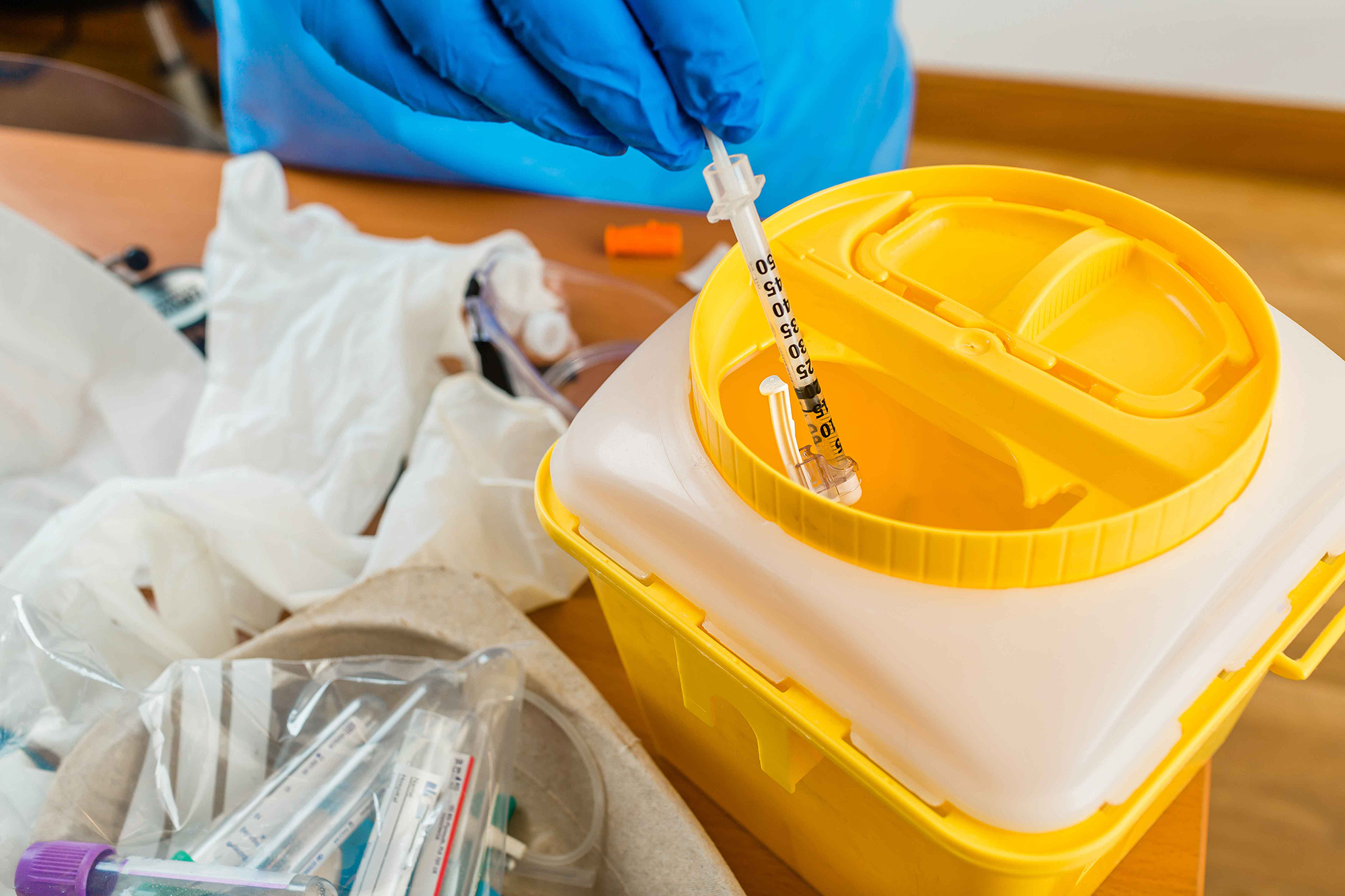Trusted Medical Waste Disposal Services: Securing Your Technique
Trusted Medical Waste Disposal Services: Securing Your Technique
Blog Article
Navigating Medical Garbage Disposal: Necessary Services for Healthcare Facilities
Health care centers, whether big healthcare facilities or small facilities, are turned over with the responsibility of handling, treating, and disposing of a large array of medical waste streams. Comprehending the vital services that sustain medical waste disposal is not just an issue of compliance yet also a fundamental component in guarding public health and wellness and ecological well-being.
Regulatory Compliance Assistance
For medical care facilities, guaranteeing regulative conformity support is necessary to keep appropriate handling and disposal of medical waste. Sticking to regulations established forth by organizations such as the Epa (EPA) and the Occupational Security and Wellness Management (OSHA) is crucial to avoid environmental contamination, safeguard public wellness, and prevent potential legal effects. Regulatory compliance assistance provides medical care facilities with advice on just how to properly segregate, store, transportation, and deal with various sorts of clinical waste in accordance with local, state, and government guidelines. This support includes support in producing and implementing detailed waste management strategies, conducting routine staff training sessions, and carrying out audits to make sure recurring compliance. By partnering with regulative conformity experts, healthcare facilities can remain up-to-date on developing laws, reduce dangers related to inappropriate waste disposal, and ultimately add to a safer and more sustainable setting for all.
Waste Segregation Guidance

Health care centers should offer clear guidelines and training to staff on just how to segregate waste effectively. This consists of separating basic waste from dangerous materials such as sharps, transmittable waste, drugs, and chemical waste. Color-coded containers, tags, and signs are generally utilized to aid in waste partition practices. Normal audits and surveillance of waste segregation processes are necessary to recognize any problems and make required renovations.
Collection and Transportation Solutions

Proper collection and transport solutions are vital components of the clinical waste disposal process in healthcare centers. These services ensure that harmful products are taken care of safely and in conformity with guidelines to protect both the atmosphere and public health. Medical care facilities rely upon specialized waste management firms to give effective collection and transport services customized to their requirements.
Medical waste collection find out here includes setting apart various kinds of waste at the factor of generation, utilizing color-coded containers or bags to distinguish between general, hazardous, pharmaceutical, and various other waste streams. As soon as gathered, the waste is transferred in dedicated automobiles equipped to handle hazardous materials safely.
Treatment and Disposal Solutions
In the world of medical waste disposal for healthcare facilities, after the essential stage of collection and transport services, the content emphasis moves towards implementing reliable treatment and disposal services. Therapy services typically involve procedures such as autoclaving, which utilizes heavy steam under pressure to sanitize the waste.
Disposal remedies incorporate the final action in the clinical waste management process. Recycling and source healing are additionally gaining traction as sustainable disposal alternatives for specific types of clinical waste products.
Reliable therapy and disposal solutions are critical in making sure conformity with policies and securing public wellness and the setting. Medical care centers have to meticulously examine and choose proper techniques that line up with their waste management goals and sustainability efforts.
Staff Training and Education

To properly take care of clinical waste disposal in healthcare centers, detailed personnel training and education play a vital duty in making sure adherence to regulative requirements and maintaining a secure atmosphere. Proper training equips team with the expertise and skills needed to take care of different sorts of clinical waste, segregate them properly, and package them securely for disposal. By enlightening employees on the risks related to improper handling of clinical waste, facilities can lower the probability of accidents, contamination, and regulative violations.

Conclusion
Finally, health care facilities depend on essential medical waste disposal services to guarantee regulative compliance, correct waste partition, secure collection and transport, efficient treatment and disposal, along with team training and education. These solutions play an essential role in keeping the wellness and safety and security of both medical care employees and the public, highlighting the value of correct monitoring of clinical waste in health care settings.
For medical care centers, guaranteeing regulative compliance assistance is crucial to keep appropriate handling and disposal of medical waste. Waste partition entails classifying different types of clinical waste to guarantee ideal handling, therapy, and disposal. This consists of separating basic waste from unsafe products such as sharps, infectious waste, drugs, and chemical waste.Clinical waste collection involves setting apart different kinds of waste at the point of generation, using color-coded bins or bags to differentiate between basic, harmful, pharmaceutical, and other waste streams.In the world of medical waste disposal for healthcare facilities, after the essential phase of collection and transport services, the emphasis shifts towards executing reliable treatment and disposal solutions.
Report this page